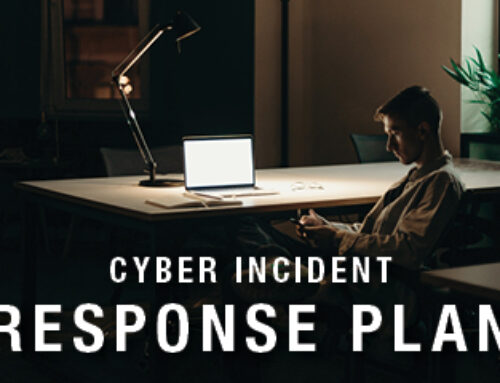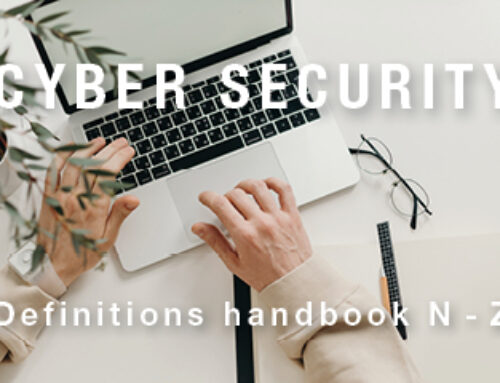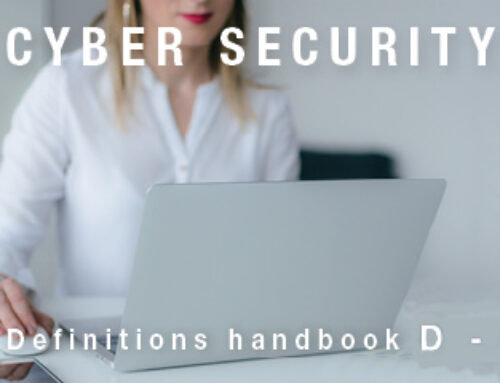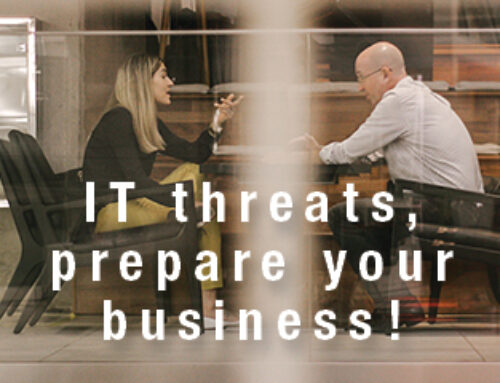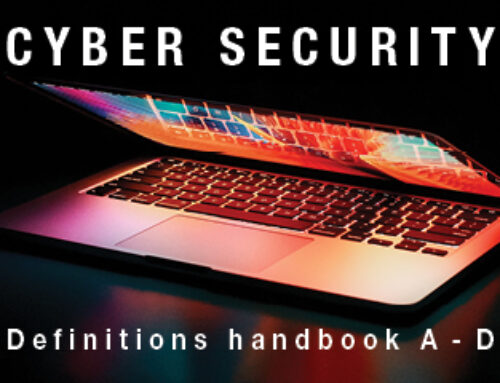Key Cyber Security Challenges for Australian Small to Medium Businesses
Welcome to the Computer trouble-shooters blog on cyber security for businesses. One of the biggest mistakes that you can make as a small business, is assuming that you aren’t large enough to be a target for malicious cyber-attacks. In fact, often, cyber-criminals target smaller businesses because they tend not to bother with putting the security systems in place to protect themselves from such threats.
Another common mistake with cyber security for businesses, is simply believing that it won’t happen to you. After all, with countless businesses out there, surely you wouldn’t be so unlucky as to become a target.
The fact is, no matter how unlikely you think it might be, the damage that cyber-attacks can cause to small businesses goes far beyond mere financial loss. Not only can these criminals target your money, but they can also go after customer data, which can have a devastating (and often irreparable) effect on your reputation.
So, whether you are a small start-up, or a medium-sized business, or a market share leader, you should have the security measures in place to prevent disaster. The slightest hiccup could undo all your hard work in a matter of minutes.
There’s no need to panic! There are several things that you can do to prevent this from happening, which we will get to shortly. First, let’s look at some of the challenges that small businesses face regarding cyber security.
Challenges for small businesses with cyber security
Let’s look at five of the most common cyber security threats that small businesses face today:
1 – Malware
Malware refers to malicious software attacks. This can include Trojans, worms, and viruses (among other nasty invasions of privacy).
Malware can have devastating impacts on a business. It can be used to cause irreparable damage to your devices, and even steal data from you. Malware can also operate in much subtler and sophisticated ways, such as, creating a ‘backdoor’ of sorts in your systems, so that cyber-criminals can access your business’s systems without being detected. These trap doors can allow them to monitor your business and steal valuable customer data right from under your nose.
As such, it is paramount that as a small business owner, you are aware of, and understand how to identify a malware threat, and successfully protect your business from them.
2 – Ransomware
And next up we have ransomware. Ransomware is arguably one of the most significant threats that small businesses face, including government agencies as well. In fact, without comprehensive backups in place, the chances of your business recovering from a ransomware attack is minimal—if not, impossible.
You see, ransomware attacks are rather lucrative for cyber-criminals. Ransomware is a type of malware that can be utilised to encrypt files. Following that, a cyber-criminal can then demand money from you in exchange for decrypting said files (hence, ‘ransom’).
Of course, we recommend that you do not pay a ransom under any circumstances, as there is never a guarantee that the criminals will hold up their end of the bargain and decrypt the data for you. After all, they are criminals, right?
Fortunately, there are ways to protect yourself from such a devastating event ever taking place, such as staying up to date with the latest cyber security trends. Again, we will cover this shortly.
3 – Phishing
Phishing is a nasty trick that fools you into believe that you are in contact with a legitimate entity. The goal of phishing is to wrest sensitive information from you, such as your bank details, or your passwords.
Phishing attacks are a threat to both businesses and individuals alike, and they can come in the form of text messages, emails, or many other forms of communication.
Your business’s email and social accounts are points of vulnerability. Certainly, you can limit the risk by having a tight circle of employees with access to these accounts, but there are more effective and sophisticated means of keeping your accounts secure as well.
4 – Supply Chain Attacks
Next up we have supply chain attacks (aka third-party attacks). These happen when a cyber security threat infiltrates your system via a third party who has access to said system. These types of attacks are becoming more and more commonplace, especially if your suppliers do not have the appropriate cyber security measures in place.
As such, it is paramount that you ensure that any third parties who have access to any of your business’s systems, that they have sufficient security measures established before-hand. This should be a deal-breaker when establishing new relationships with suppliers; if their security isn’t up to par, do not give them access to anything.
Just as you will be taking steps to increase your overall cyber security, so should your partners.
5 – Your Employees
Don’t panic! We aren’t saying that there is a mole on the payroll! And it would be very unlikely for you to hire a malicious employee who is only out to sabotage your operation and take advantage of you.
It is important that you give all your employees the appropriate training when it comes to cyber security. Often, a small to medium sized business falls prey to cyber-criminals due to human error, carelessness, or a simple lack of awareness.
Certainly, for businesses cyber security is everyone’s responsibility. As soon as someone signs up to work for you, they are entering an agreement to keep the brand’s best interests at heart. Still, it is your responsibility as an employer so ensure that everyone is on the right page and that they are suitably informed as to the cyber threats that can compromise your business. After all, if your business falls under a cyber-threat, they’ll be out of the job too!
Challenges in cyber security for businesses
Of course, it’s not just small to medium sized businesses that are under threat of cyber security attacks. Every business, from a small start-up, right through to some of the largest and most established brands in Australia, can be the targets of cyber-criminals.
In fact, here’s a quick look at some of the most common cyber-threats that large businesses in Australia face today:
- Social engineering (e.g., phishing and scareware)
- Ransomware
- DDoS attacks
- Third-party software
- Cloud computing vulnerabilities
You see, it doesn’t matter how large or seemingly untouchable a business might be, there is always someone out there who is looking for ways to exploit, manipulate, and rip-off unsuspecting businesses.
But it’s not all doom and gloom! Read on to find out more about the various ways that you can protect yourself from vicious cyber-threats, no matter how big or small your business might be…
Cyber security for business leaders
OK then! Now that we have put the fear in you (sorry about that); What can you, as a business leader, do to protect your business, your employees, and your customer’s data from would-be cyber-criminals with nefarious intentions?
As promised, here are several practices that you can leverage to protect your business from the growing number of cyber-threats that we all face today, in the digitalised world of business:
- Back up your data (we recommend adopting multiple back-up methods)
- Secure your devices and network (install and update security software / invest in a firewall etc.)
- Encrypt vital information (you can do so by utilising a virtual private network—AKA, a VPN)
- Use multi-factor authentication (MFA—additional layers of security, such as a pin verification process)
- Manage passphrases (passphrases are much harder for computer systems to crack, though easier for humans to remember)
- Monitor the use of your computer systems (and remove software or equipment that is no longer in use)
- Implement policies to educate and guide your staff
- Train your employees to be safer online (how to identify potential cyber-threats, etc.)
- Protect your customers (provide a secure online environment for transactions, etc.)
- Consider investing in cyber-security insurance (just in case)
- Remain up to date on the latest risks
- Seek cyber-security advice (which is where we come in!)
As you can see, there is a great number of things that you can do to keep your business airtight and prevent cyber-threats from undoing all your hard work.
Batten Down the Hatches with Professional Cyber Security Services!
Are you feeling somewhat exposed? If so, then we have done our job properly. You see, we aren’t trying to scare people unnecessarily. These threats are real, and they effect countless businesses and individuals across Australia (and the rest of the world), every single day!
Our cyber security services for small businesses to market share leaders
So, if you are a small business owner or a business leader and—if you are being entirely honest with yourself—think that you could do with tightening up on your cyber security, then please do not hesitate to contact us today.
Our friendly advisors will gladly answer any questions that you might have and will be able to prescribe the perfect cyber security solutions to suit your unique situation.
Thank you for reading and please, stay safe out there!


